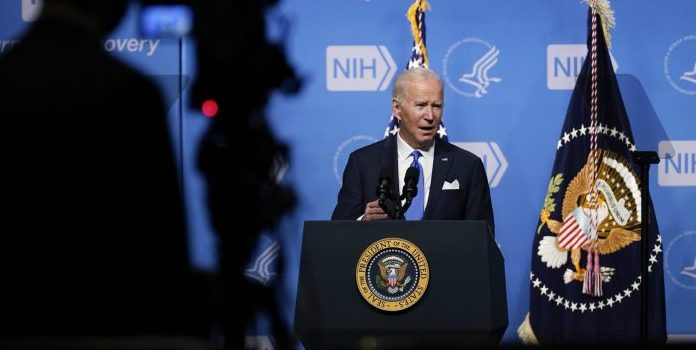(The Center Square) Congress’s recent $1.7 trillion omnibus spending bill increased the budget for medical research funding at the National Institutes of Health to nearly $50 billion in 2023 alone. A closer look at the agency reveals that NIH is increasingly spending its time, and funds, on equity and LGBT issues as well as “systemic racism and inequities.”
The National Institutes of Health has devoted millions of taxpayer dollars toward these kinds of issues for their research, taxpayer money that did not go to the federal health agency’s primary research goal of finding cures and medical treatments.
“The fact that NIH is doing this is very worrisome,” said Mike Gonzalez, an expert on racial issues at the Heritage Foundation.
“This is actually a danger now, the fact that it is entering medicine because these are life and death issues, and if we are going to be making these decisions based on these hocus pocus ideas of [Diversity, Equity, and Inclusion] in order to satisfy some virtue signaling that our government seems to be at this point completely suffused with, we are going to start putting people’s lives in danger,” he added.
The latest omnibus increased NIH’s 2023 budget by about $2.5 billion, or 5.6%, totaling $47.5 billion. NIH’s budget 10 years ago was less than $30 billion.
This kind of focus comes in part because the National Institute on Minority Health and Health Disparities was upgraded from a center to an institute during the Obama administration. Racial disparities do exist in certain health conditions, but the research grants awarded by NIH go beyond those standard health conditions.
In 2020, the agency created a new category for research alongside its list of illnesses called “social determinants of health,” one of several funding vehicles for these kinds of grants.
For example, NIH funded a $1.2 million grant to find evidence that racism is to blame for poor sleep in minority communities. The studies are based on the hypothesis that the disparity in sleep health in the Black community is “thought to be explained partially by experiences of interpersonal racial discrimination.”
“The central hypothesis is that police use of deadly force on unarmed black Americans leads to unhealthy sleep among other black Americans in the general U.S. population,” the grant summary in the NIH database reads.
The NIH is the nation’s self-proclaimed “medical research agency, making important discoveries that improve health and save lives.”
“This idea that the way to deal with the disparities that we have is not by addressing root causes but by addressing outcomes is bizarre,” Gonazalez said.
“Equity has become the functional opposite of equality,” he continued. “It just means that we are going to treat people differently according to their race in order to affect outcomes.”
NIH also awarded $232,500 in 2015 and $193,750 in 2016 to the University of California, San Diego to develop an interactive and tailored text-messages system to encourage Latino men to exercise.
“Mexican American (MA) men report particularly low rates of physical activity (PA) and are disproportionately burdened by conditions related to sedentary lifestyle (e.g., diabetes, obesity),” the grant description in the NIH database reads. “Due to cultural, SES, educational, and language differences, MA men may have limited access to public health interventions promoting PA.”
For NIH, any kind of disparity could end up justifying more tax dollars in racially-tailored research. The same goes for LGBT issues.
NIH spent $432,000 on a study of Grindr, an app for gay men to find romantic and sexual encounters in 2012 and 2013.
The study pledged to “investigate the process by which MSM use smartphone applications to find sexual partners (i.e., who they look for, how they present themselves, how they communicate, extent of safer sex negotiation, and disclosure)” as well as “investigate the sexual and emotional states (e.g., more/less urgency, arousal, impulsivity)” the men experience when using the apps to see how if affects sexually risky behavior.
That kind of research has continued, including a 2023 grant awarding $614,775 to study an “HIV prevention intervention into a widely-used geosocial app for Chinese [men who have sex with men].” The funds would be used to prevent the spread of HIV in China via outreach through a romantic hookup app “to help individuals understand when they should be using certain prevention services, and to make accessing services less burdensome.”
These are just a few of many more examples.
“We all have a responsibility to correct systemic racism and inequities,” NIH says on its website.
The researchers tout the public health benefits of their research. Dr. Alexander Tsai, an associate professor at Harvard University, is conducting the aforementioned sleep research through Massachusetts General Hospital, where he works as a psychiatrist.
Tsai has touted the program to The Center Square, saying “the study seems neither unsubstantiated nor grounded in racial ideology.”
“And, given the public health significance, it falls well within the purview of the U.S. National Institutes of Health, so neither would it be a poor use of taxpayer dollars,” he added.

